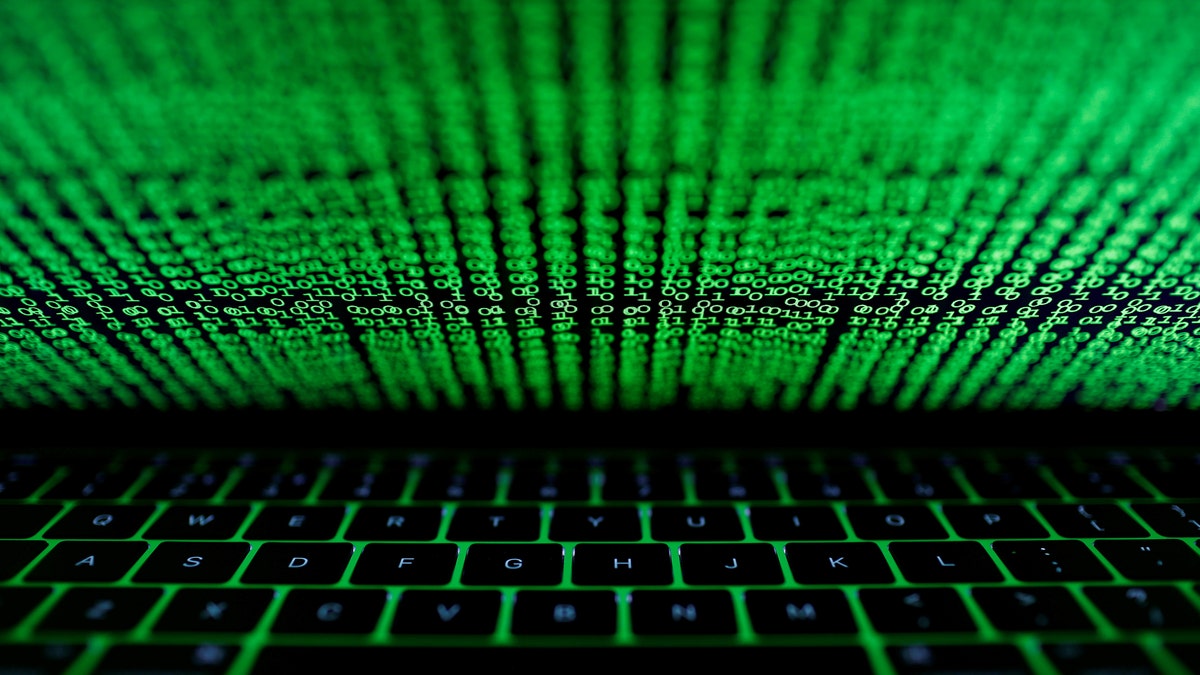
A computer keyboard lit by a displayed cyber code is seen in this illustration picture taken on March 1, 2017. (REUTERS/Kacper Pempel/Illustration)
Sitting slumped in your chair all day at work? AI agents are here to ruin your nap.
In the near future, experts say an AI will know who is producing the most work and who is slacking off by spending too much time surfing the web and drinking coffee.
“AI will soon be able to measure productivity based on the quality of work produced,” said Ran Craycraft, a Managing Partner at the machine learning company Wildebeest. “Writers’ productivity could easily be measured based on the volume, complexity, and emotion of the stories they produce. In sales, the number of emails sent and the ratio of positive to negative responses could be an additional metric that factors into a salesperson's compensation.”
Dana Gibber, an executive at software firm Headliner Labs, said these AI agents will be perceived as incredibly valuable because they will provide key insights about employee behavior, encourage best practices, and increase efficiency.
Here’s just one example. Let’s say there’s a team of software developers. An AI could track how much code each person produces each day, how many breaks they take, and the quality of the work. If one team member is slacking off, the boss would know.
“AI will continuously track each individual's performance and report data to employers on a review cycle of their choice,” said Andre Lavoie, the CEO and cofounder of the talent acquisition and management firm ClearCompany. “If necessary, it can also track the amount of time spent browsing on the internet versus relevant activity, and even time periods of inactivity.”
CAN ARTIFICIAL INTELLIGENCE HELP THWART RANSOMWARE?
There’s already a precedent for this type of productivity monitoring.
Matt Fleckenstein, a spokesperson for workflow company Nintex, told Fox News that many companies already track employee browsing habits. It’s a way to make sure workers do not violate workplace regulations, and the software is already widely used.
He said, where AI can help is to determine the intent. Someone might be browsing articles all day, but there might be a good reason for that -- such as conducting research.
HOW AI AND TECH COULD STRENGTHEN AMERICA’S BORDER WALL
“AI can help identify web surfing patterns and then correlate those behaviors back to impact on actual job performance – is that behavior helping an individual to close more (or fewer) sales deals, be more (or less) effective at giving sales pitches, or is that behavior simply irrelevant to performance,” he added, noting that the AI would improve productivity, not spy on slackers. He says the goal would be to point out to workers where they can be more efficient.
Microsoft is already well on the path to sniffing out productivity problems. The Workplace Analytics add-on for Microsoft Office can tell who has sent the most emails in a day, and it’s able to see if meetings you attend might not make sense for your role at a company.
A spokesperson at Microsoft said the data is never used to identify slackers, however. The data is always aggregated and de-identified as a way to maintain privacy.
HOW ARTIFICIAL INTELLIGENCE COULD BATTLE SEXUAL HARASSMENT IN THE WORKPLACE
Of course, the experts say these AI agents will be a welcome innovation for bosses.
“When an employee is nabbed for doing something a boss couldn't see with her own eyes, that's when we start to get into a grey area,” said Craycraft. “If you're not working as hard as you can and your productivity is measurable with AI, your job may soon be at risk. Employees will not welcome an increase in surveillance with open arms. Workers will likely organize and begin to fight back against AI similarly to how unions have historically fought automation.”
The word of caution? AI will be presented as a productivity enhancer. Yet, if you goof off, the experts say there is a good chance the AI might auto-generate a pink slip.








































